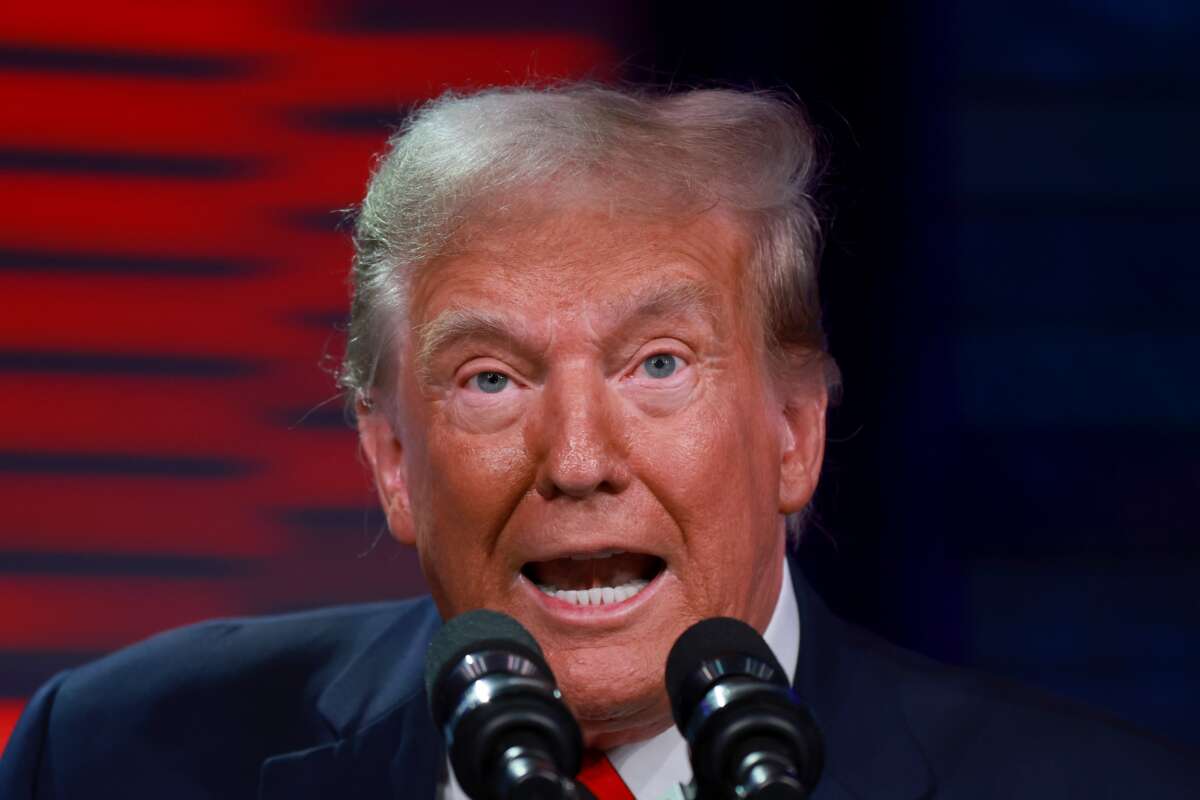Republicans on Capitol Hill have vastly downplayed the importance of former President Donald Trump twice stating in the past week that he wants dictatorial powers on the first day of his next term in office, should he win the 2024 presidential election.
Trump’s comments, which presume he’s going to win what will be, by all accounts, a tightly contested race, were initially made last week during a town hall event on Fox News hosted by Sean Hannity. The Fox News host had asked Trump to respond to criticisms that, were he allowed to be in the White House again, he would govern in an autocratic manner.
Trump avoided answering the question the first time he was asked it, but eventually responded to Hannity’s query, telling him he wouldn’t rule as a dictator “other than day one.” Trump said he would want to have that kind of power — unprecedented in U.S. history — in order to enact xenophobic immigration laws, such as building a wall on the border with Mexico, and opening up oil drilling sites across the country.
“After that, I’m not a dictator,” Trump swore.
Trump has engaged in similar anti-democratic rhetoric in the past. In December of last year, for example, he called for the temporary “termination of all rules, regulations, and articles, even those found in the Constitution” to reinstall him as president of the United States. While in office, he also wrongly claimed that Article II of the U.S. Constitution — which frames the powers and limits of the presidency — allowed him “the right to do whatever [he] want[ed].”
Taken together, these types of comments from Trump — as well as his insistence that Republicans (including his former Vice President Mike Pence) baselessly and illegally overturn his election loss in the Electoral College certification ceremony on January 6, 2021 — suggest that his comments about only taking on dictatorial powers temporarily would in reality possibly last indefinitely, especially since the actions he’s saying he would take would require more than one day to successfully implement.
Nevertheless, over the weekend Republican leaders in Congress played down Trump’s comments.
“It’s entertainment. We’ve been around him long enough, it’s entertaining,” Rep. Michael McCaul (R-Texas) said with a grin, responding to Trump’s words.
Sen. Lindsey Graham (R-South Carolina) told reporters that Trump’s comments were “a joke,” and Sen. John Thune (R-South Dakota) dismissed them as “typical Trump rhetoric.” Rep. James Comer (R-Kentucky) also defended Trump’s words, describing the former president’s calls to be dictator for a day as “unique expressions.”
Those defenses are overshadowed by the fact that Trump doubled down on his desire to be a dictator on Saturday evening while addressing a conservative soiree in New York City (an event that was also attended by far right figures such as Trump’s former political adviser Steve Bannon, as well as Harald Vilimsky, the secretary-general of Austria’s Eurosceptic Freedom Party, a party founded by former Nazis).
Trump quibbled with the media’s depiction of him saying he wanted to be a dictator. “I didn’t say that, I said I want to be a dictator for one day,” Trump said.
Critics rightly point out that granting a person dictatorial powers, even for just one day, is never consistent with the idea of democracy — and that, with Trump especially, it would be a gamble over whether such powers would be relinquished once that time period concluded.
“One-day dictatorships are not okay,” MSNBC producer Steve Benen said. “The idea that the Republican’s position is somehow tolerable because he only wants to exercise authoritarian rule for a brief period is not just utterly bonkers, it reflects an inherent hostility to the bedrock principles that serve as the foundation for the American experiment.”
Harvard Law professor emeritus Laurence Tribe similarly questioned the notion that any rational person could believe Trump was only joking about his desire to be an autocrat.
“If you think Trump is joking, think again,” Tribe said. “His snarky boast that he’ll be ‘Dictator — but Only on Day One’ — needs to be accompanied by the tune to ‘Days That Last Forever.'”
Ruth Ben-Ghiat, a historian who is an expert on authoritarian regimes and figures, noted that Trump’s calls for a dictatorship would benefit others, a hallmark action of individuals seeking such powers.
“Wall and drill: profits for fossil fuel and security industries. This is a man who knows how to forge ‘authoritarian bargains’ with elites who can cash out during his presidency,” Ben-Ghiat said on social media.
Press freedom is under attack
As Trump cracks down on political speech, independent media is increasingly necessary.
Truthout produces reporting you won’t see in the mainstream: journalism from the frontlines of global conflict, interviews with grassroots movement leaders, high-quality legal analysis and more.
Our work is possible thanks to reader support. Help Truthout catalyze change and social justice — make a tax-deductible monthly or one-time donation today.
